Cover Story: Election 2020: The 100-Year Storm
Top news executives discuss their plans for the most unusual campaign cycle in history
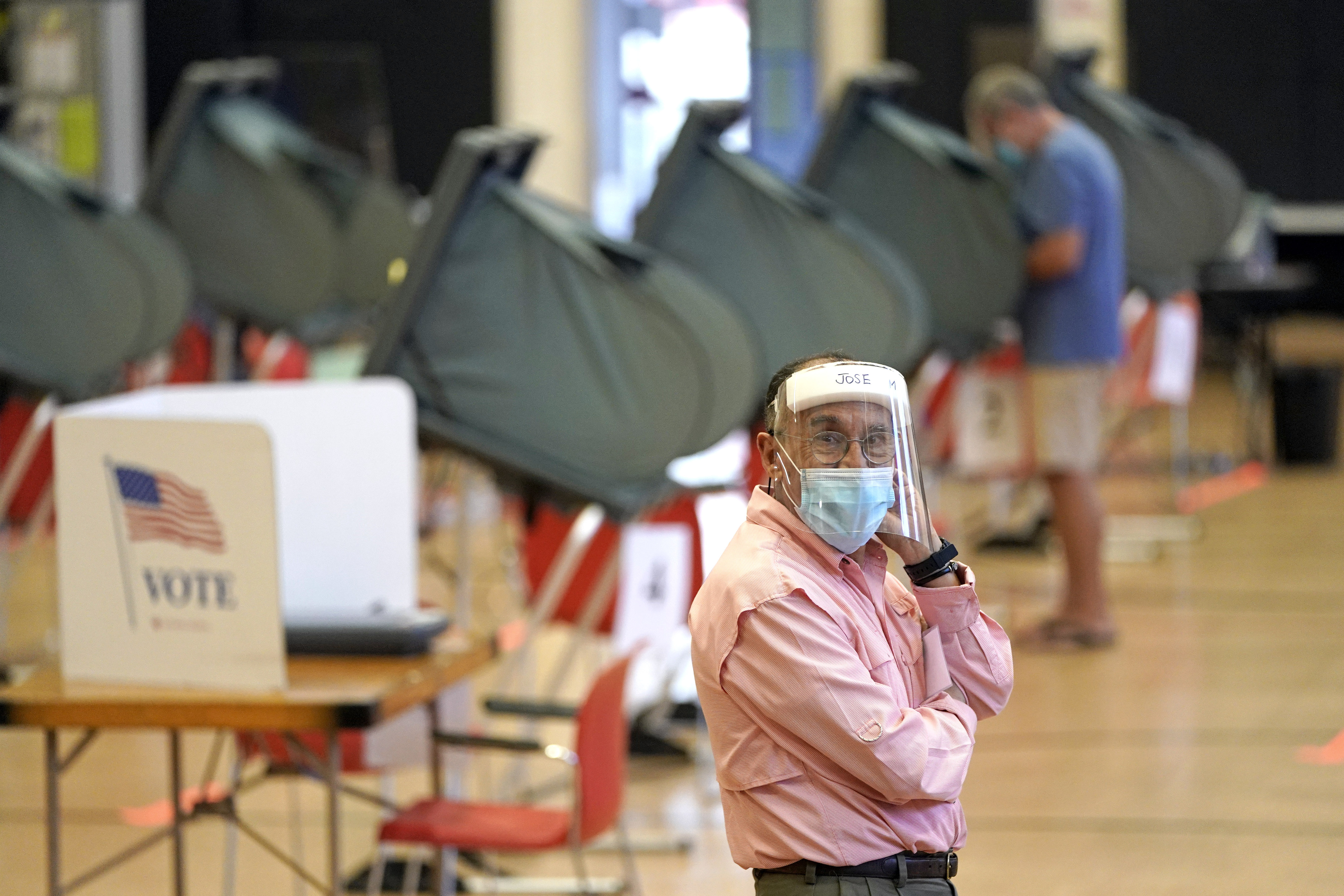
The smarter way to stay on top of broadcasting and cable industry. Sign up below
You are now subscribed
Your newsletter sign-up was successful
Over the last six months, a perfect storm has swept across the news business, radically changing or even obliterating the traditional playbook for election coverage.
The pandemic has killed off campaign rallies, reduced the conventions to a somber virtual shell of the usual festivities and is threatening to rewrite the script for election-night coverage, as news organizations prepare to handle mail-in ballots and voter suppression problems that may prolong their coverage into what one news executive referred to as “election results month.”
Not surprisingly, the 20 news executives interviewed for this report are calling the 2020 election “unprecedented,” “like no other,” “unimaginable” and “completely bizarre.”
See Also: Racial Reckoning | Think Local: Broadcast and Stream Everywhere
“Usually in the latter part of the election year, the election is the story, sometimes the only major story,” said Sam Feist, CNN’s Washington, D.C., bureau chief. “But this year that is not the case. The election is competing with COVID and our national reckoning on race and policing.”
The magnitude of these problems — the largest racial-justice protests in half a century, an economic collapse that sent gross domestic product into a 33% tailspin in the second quarter and a pandemic that has killed nearly 160,000 people — is also prompting news executives to make radical changes in their election and political coverage.
Most notably, that has put issues front and center in the election cycle, as opposed to the usual horse race coverage of stump speeches, rallies and campaign strategies.
The smarter way to stay on top of broadcasting and cable industry. Sign up below
“The issues we are dealing with in many ways are bigger than the election,” said Martha MacCallum, who is co-anchoring Fox News Channel’s election coverage and anchors The Story. “People have a strong sense of the gravity of this moment and they are looking to President Trump and former Vice President Biden to provide leadership and answers on those issues.”
Similar sentiments can be found at most other news organizations. “In 2016, there was a big focus on the horse race between Donald Trump and Hillary Clinton and the back-and-forth of that popularity and unpopularity contest,” Justin Dial, senior executive producer at the ABC News Live streaming service, said. “But in 2020, viewers are more interested in the issues. You have to get beyond the horse race and really dig into the issues.”
Significant as it may be, news organizations are not solely focused on the election. “We are devoting the vast majority of our journalism resources to the pandemic, the fragile economy and the racial-justice movement that are top of mind with voters,” Newsy VP of news and programming Christina Hartman said. “In that sense, this will be the first election where the majority of our election coverage is not explicitly about the election.”
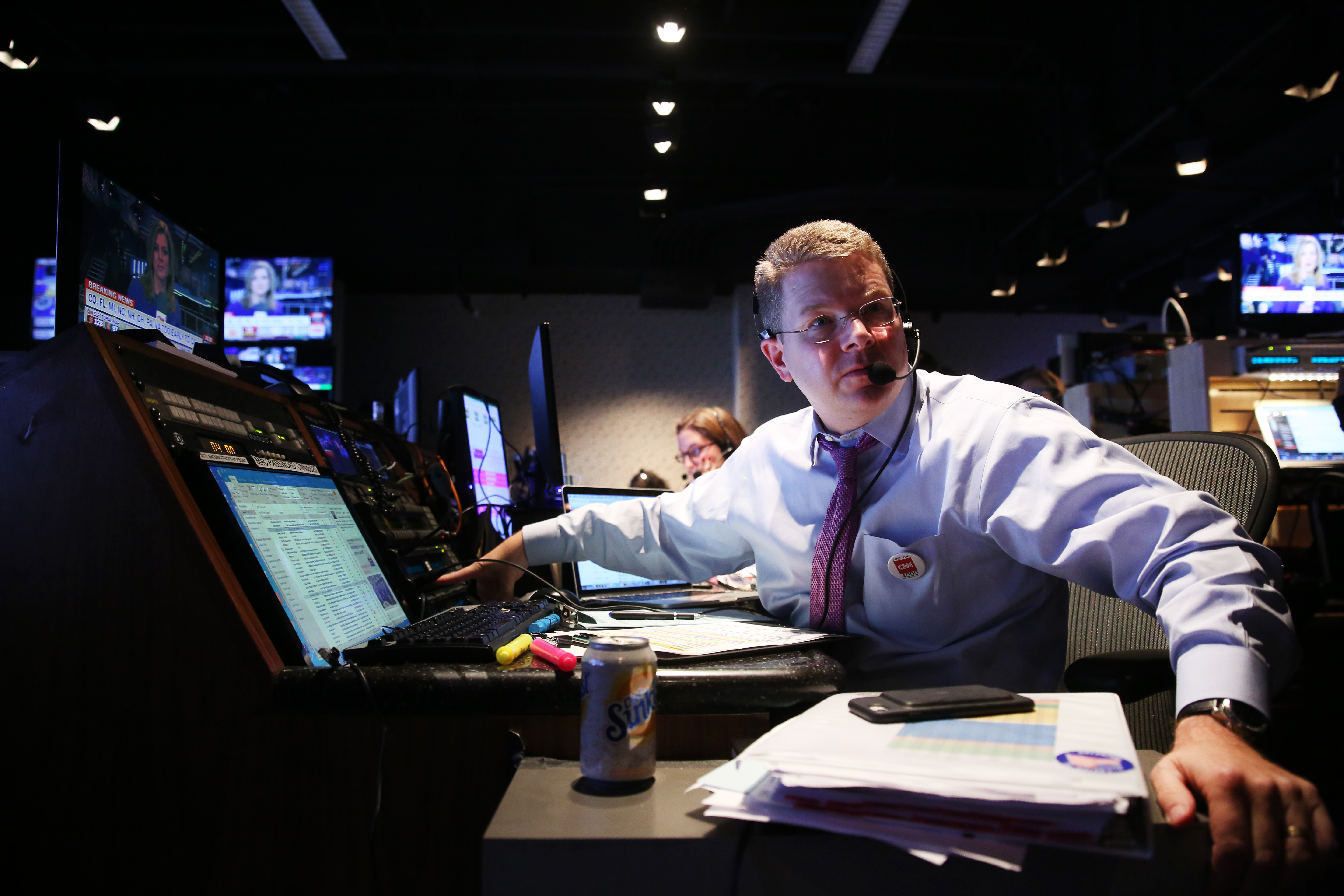
Home Alone
Covering these once-in-a-lifetime issues has created enormous challenges. About 95% of the staff at NBC News and MSNBC is working from home, the network said. “It’s changed the way we produce and broadcast our news programs and report from the campaign trail,” Rashida Jones, senior VP of NBC News and MSNBC, said.
But many news executives also stress that the work-from-home environment has provided them with a welcome opportunity to rethink the way they tell stories. “If you look back four years ago, I think the mistake our industry made was to focus too much on the personalities and the tweets,” E.W. Scripps VP of news Sean McLaughlin said. “What people missed was that there were a lot of unhappy people.
“This time around, we are doing a better job of listening,” he said. “We are tackling it differently and packaging it differently. And I like that, because it is not about responding to a convention or a press conference or following the candidate on campaign trails where we listen to the same canned speeches. It is better journalism and better for the American election cycle.”
One major example of how news organizations are taking a different tack on election coverage can be found in the coverage of the racial justice issues and in the role that Hispanics are likely to play in the election. (See sidebar, page 10.) “The projection is that about 32 million Latinos will be eligible to vote this time,” Univision VP of politics Lourdes Torres said.
That is making their experiences a centerpiece not only for Spanish-language
networks, but all news outlets. “We saw a huge increase in turnout among Latinos in 2018 in key states,” Torres said. “In 2020, how they engage with the candidates will be very interesting and important to the election.”
Younger viewers want those vital social issues covered in-depth. “In some sense, this is the election we’ve been working towards at Vice for a long time,” Susie Banikarim, executive VP and global head of newsgathering at Vice News, said. “Vice has been deeply embedded in issues like racial justice for a long time. We have a young audience that doesn’t come to us for the traditional horse-race coverage or pundits shouting at each other. So we really feel like we’re leaning into things that we’ve been covering for a long time.”
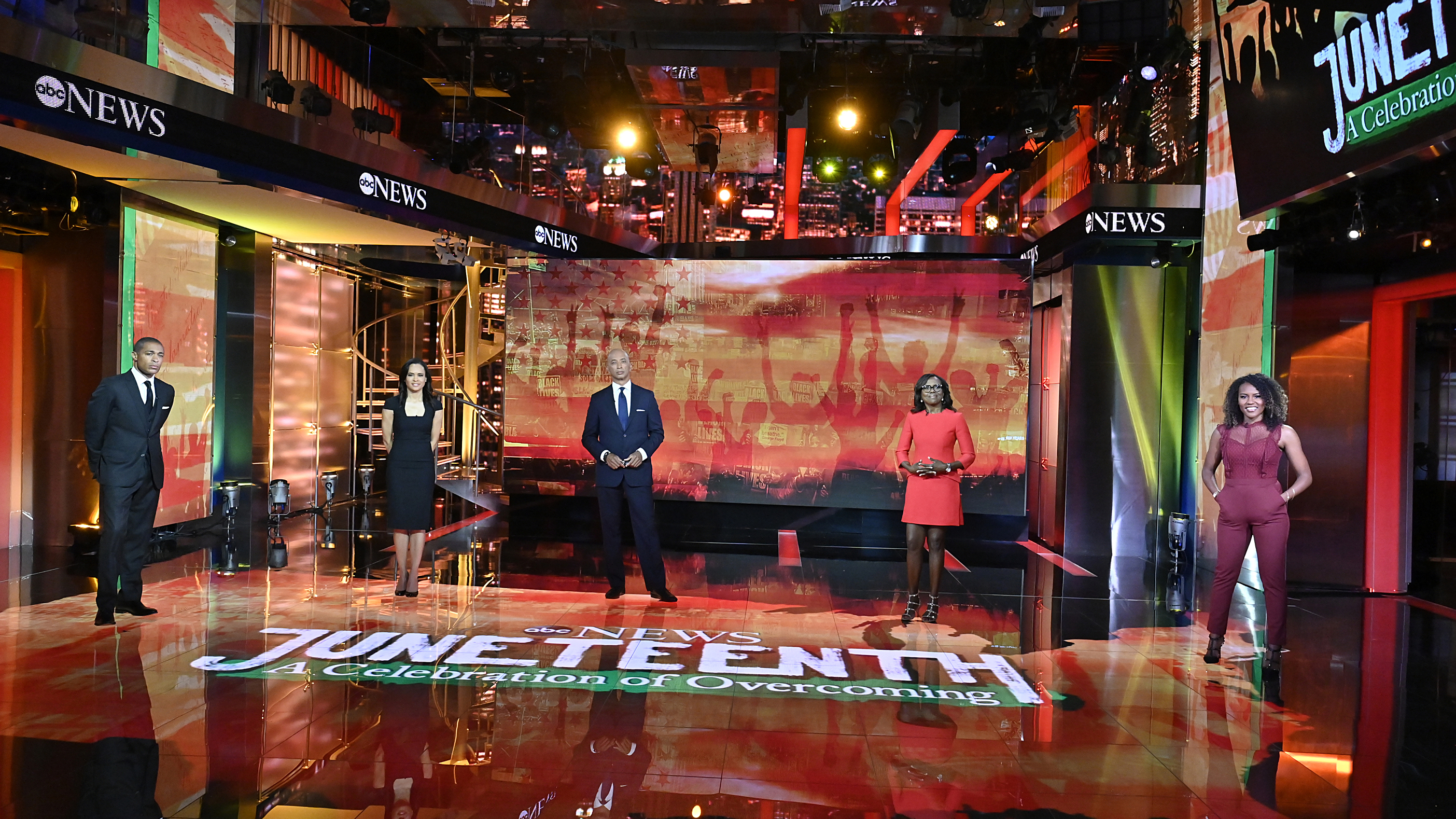
Local First
With the pandemic imposing travel restrictions on coverage, having local reporters or ties to TV stations is another key trend. (See sidebar, page 11.) “We now have 10 local versions of CBSN and those have been augmenting what we are already doing in terms of going deeper into local politics,” Christy Tanner, executive VP and general manager of CBS News Digital, said.
Having that extra coverage in swing states “has been a real differentiator” for the streaming service, she said.
“When we built our political team two years ago, we set it up to have reporters all around the country,” Associated Press Washington bureau chief Julie Pace said. “We wanted to make certain that we had people who were living in a lot of these states that were going to decide the election and that our coverage wasn’t just reflecting the inside-the-Beltway chatter. That has been a huge advantage now that you can’t have people flying around.”
Similarly, ABC News and NBC News have launched initiatives focusing on issues and politics in swing states. “Once the campaigning stopped because of the virus, we directed the teams embedded with the candidates to cover issues, starting with the economic issues from the shutdown and then racial disparity,” said Wendy Fisher, VP, newsgathering, ABC News. “Now, the same group of people are focusing on the big issues in certain battleground states.”
Chuck Todd, moderator of Meet the Press and NBC News political director, explained in an email that in November 2019, “we launched a year-long project focusing on five bellwether counties [in Wisconsin,
Michigan, Pennsylvania, Arizona and Florida] across the country to better understand what’s happening on a hyper-local level … to better understand what we think will define what happens in November.”
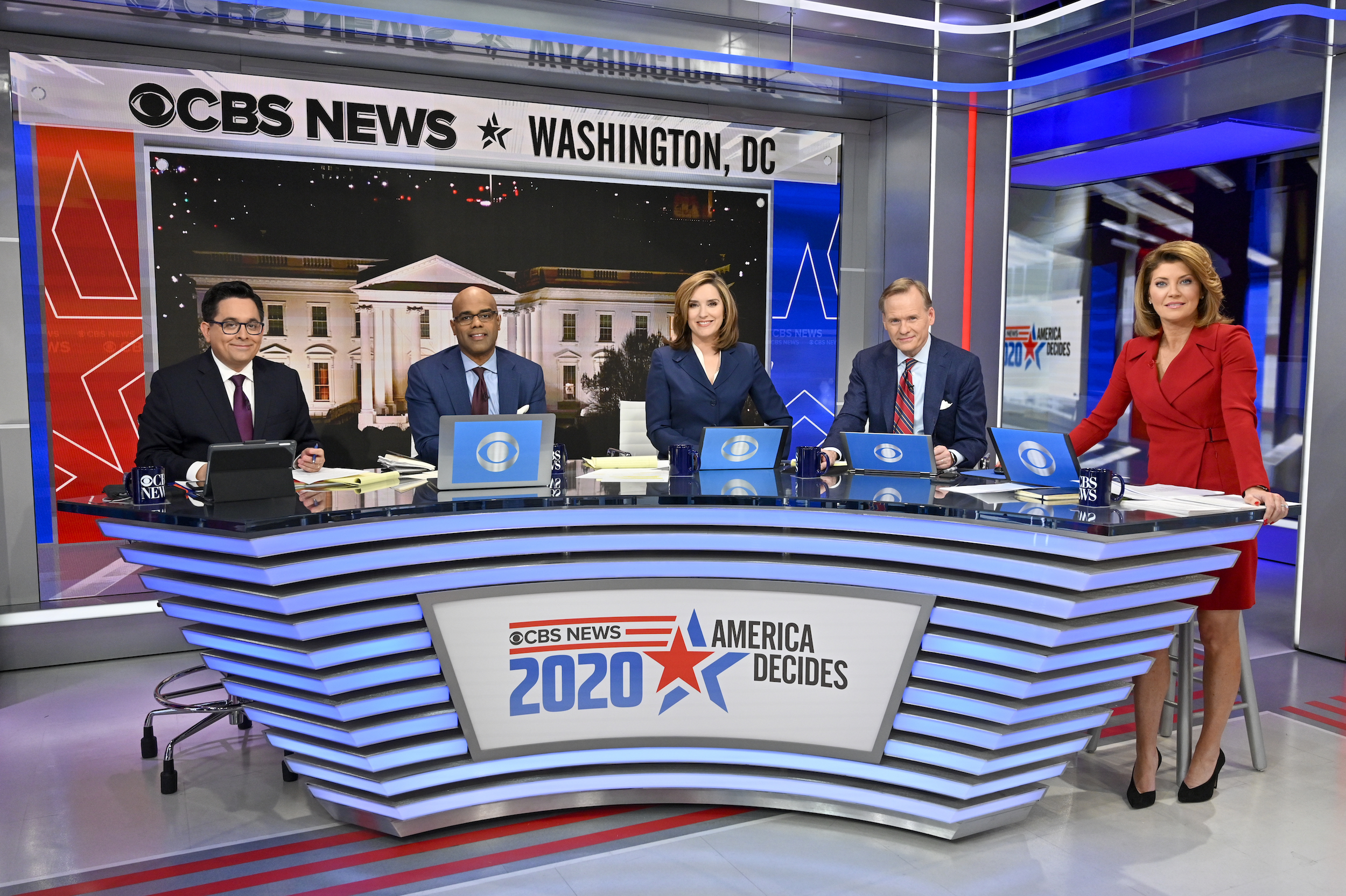
Unconventional Conventions
Viewers will also see major changes in this year’s convention coverage. Unlike 2016, when the razzle dazzle of the conventions was over by July, the Republican and Democratic National Conventions will be mostly virtual when they finally happen later this month. All of the major news organizations have dramatically cut back their presence in Charlotte, North Carolina, and Milwaukee, the RNC and DNC cities, respectively.
ABC News will anchor the conventions from New York, using two control rooms so social-distancing rules can be followed, senior executive producer for special events Marc Burstein said. A reduced presence in the convention cities doesn’t make the event less important, he stressed.
“You hear the argument that no news
is made at the conventions so why bother with them,” he said. “I don’t subscribe to that at all. With the issues the country is facing right now with the coronavirus and the economic decline and the racial unrest, the conventions will provide voters with plans for how each party plans to tackle these problems and what the country is going to look like under a Democratic president or a Republican president.”
Others stress a similar point. CBS News political director Caitlin Conant noted that in recent months, “major issues regarding the pandemic, the economy and widespread protests have overshadowed some political issues.” As a result, CBS political reporters have been spending more time on those issues, producing such content as the “COVID Chronicles” series of reports.
“The conventions are going to be a big moment for the campaigns,” she said. “It will let the candidates basically reintroduce themselves to America and bring the focus back to politics.”
Conant and others also stressed that the revamped conventions offer news organizations an opportunity to rethink how they cover the issues that matter to voters. “It opens up a different thought process of how you approach the convention,” explained Fox News VP of politics and the Washington, D.C., bureau Cherie Grzech. “It means you can bring in players from every state virtually, rather than having everyone in one location, so it gives us a lot more options to get more experts and guests involved in the coverage.”
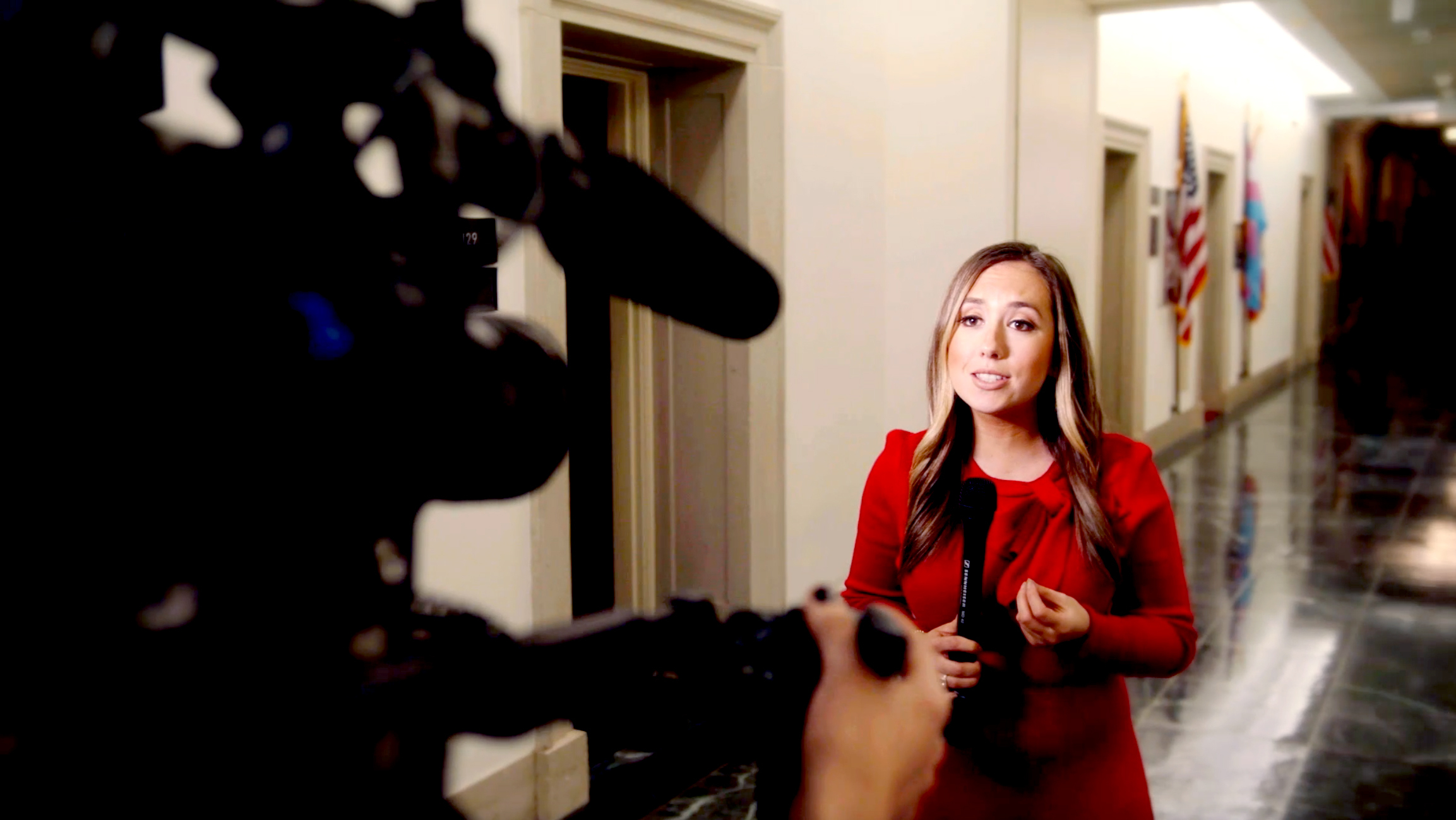
Digital All-Stars
This year’s election coverage will also highlight the maturity and central importance of streaming and digital media. ABC News, for one, is planning one program for both linear TV and live streaming on the ABC News Live app for the conventions. “It won’t be like it was eight years ago, where only some people are on the network and there is another cast of characters on the digital live stream,” Burstein said. “We haven’t decided what will be streamed and what will be on the TV network, but it will be one show and we’ll have what I call our ‘A’ team on the digital live stream.”
More fundamentally, the renewed emphasis on issues will dovetail with the fact that streaming apps like CBSN, Newsy, Vice, NBC News, and ABC News Live have long focused on fact-based reporting of issues, investigative journalism and long-form documentaries. “This election year is going to be like no other we’ve ever seen, with people desperate for straightforward reporting and unbiased news and information,” noted Dial at ABC News Live. Since January 2020, it has been attracting about 20 million monthly viewers, up 142% according to ABC, with over 4.5 million hours streamed each week.
In addition to their long-standing focus on issues, executives at the major streaming outlets also stressed that their digital origins help in adapting to the pandemic-related restrictions on travel and reporting. “We were already interviewing people over Zoom and we already had very flexible operations that have helped us when we were first faced with the restrictions produced by the pandemic,” said Tanner at CBS News Digital
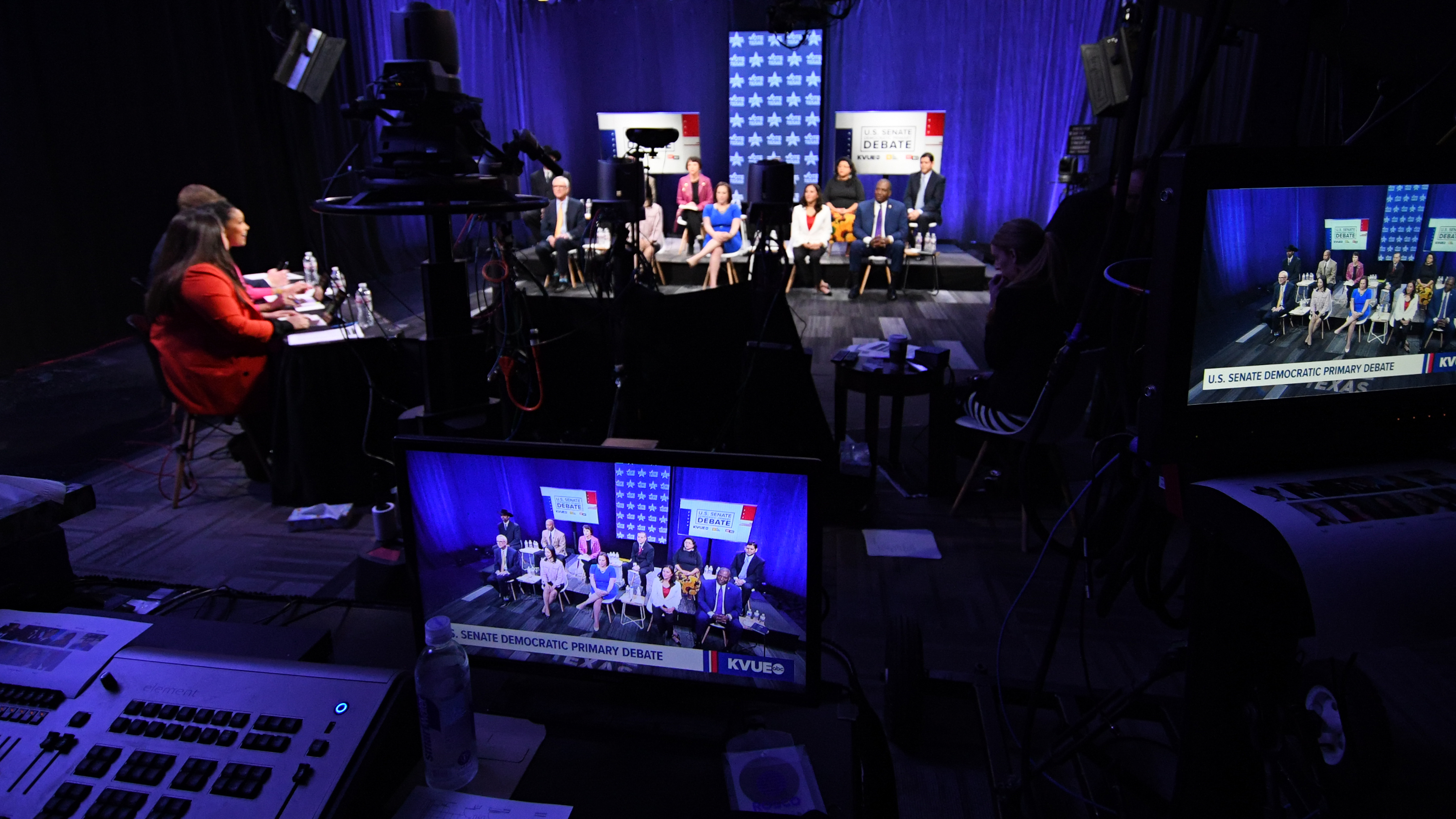
Election Month?
Such flexibility will be important on election night, which may not follow any traditional script for analyzing the results. “We are working very hard right now to prepare ourselves so we’re up to speed on all the scenarios, both legal and logistical, that could occur in terms of voting rights, voter suppression and the vote counting,” CBS News’s Conant said.
Pointing to a recent podcast by chief Washington correspondent Major Garrett on some of the potential issues that might arise from voting during the pandemic, she added, “We need to be prepared if this is election week or election month.”
Even the look and feel of this election night coverage may be different, as the major networks and news organizations try to figure out how to stage election-night coverage during a pandemic. CNN’s Feist noted that they will be spreading talent over a wider area in additional studios and that their ongoing move towards new technical infrastructures has allowed them to have many people working from home who would normally be sitting in control rooms.
CNN has also significantly upgraded its data analytics for correspondent John King’s “Magic Wall” presentations and will be greatly expanding the amount of data it makes available online. This is notable because news organizations have been working overtime to figure out how to do a better job of handling data and avoiding some of the inaccurate predictions made during the 2016 election campaign.
“How you are describing the polls and what that means for the election is always a fairly complicated process,” noted Micah Cohen, managing editor, FiveThirtyEight. “In 2016, polls showed Clinton up by three or four points nationally, yet the race was being described by many journalists as a runaway for Clinton. That was a mistake, not on the polls but on the people interpreting the polls.”
This time around, Cohen sees the efforts by organizations like ABC News, which owns FiveThirtyEight, to beef up their data offerings and analytics as a welcome development. “I think people are doing better, but some aren’t and some are drawing the wrong conclusion that we can’t trust the polls at all,” Cohen said.
How well news organizations maintain their focus on these and other pressing issues remains to be seen. But most remain optimistic that the once-in-a-lifetime troubles could produce some of the industry’s best journalism in the 21st century.
“Anyone can follow a candidate spewing a stump speech,” said McLaughlin at Scripps. “Really digging in and following the money, and fact-checking and figuring out what is really going on and holding people accountable, is never easy, and these are not the easiest of circumstances to do that … But it’s never been more important. It’s our time
to shine.”
